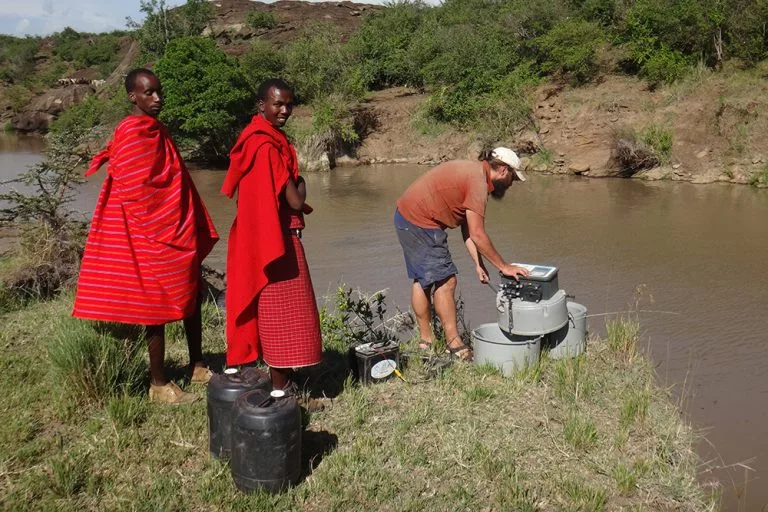When not grazing on land, hippos like to keep cool by gathering in packed pools for up to 16 hours a day, and it takes more than some shifting bowels for them to leave again. The semi-aquatic creatures freely release excrement into these waterways, and with it go bacteria and microbes from their bellies. Bold new research has plumbed the depths of these poo-packed pools and found they constitute a type of "meta-gut," in which microbes might be shared between the hippos to their benefit, with potential downstream effects on the surrounding ecosystem.
The communities of microorganisms living in our stomachs, known as the gut microbiome, play an important role in digestion, and research continues to uncover all kinds of ways they can influence human health. And the value of these microbes doesn't disappear when they leave the human body, either, with the field of fecal transplantation showing how they can be repurposed for beneficial outcomes in other patients, including treating melanomas, alcoholism and autism, to list a few examples.
Biologists at the University of Florida have been exploring what this might mean for the animal kingdom, with the pools frequented by densely-packed hordes of hippos offering the perfect testbed. This led them to the Mara River in East Africa, which is home to more than 4,000 hippos who do a whole lotta pooping.
“In some of the hippo pools, there’s so much feces floating on the surface that you can’t tell there’s water beneath it,” says Christopher Dutton, who led the study.

The scientists used a mix of field observations, natural and controlled experiments, and RNA sequencing to analyze the microbial communities within the pools, and found a coalescence between gut microbiomes and the microbial populations in the water receiving a high input of excrement.
By transferring their gut microbiomes to the shared body of the water, the hippos are creating a type of communal "meta-gut," according to the researchers. While these shared microbes might benefit the hippos as a collective, kind of like a "probiotic shake," the scientists believe the meta-gut may also alter the composition of the water in a way that impacts other organisms, such as fish.
In waters with high concentrations of hippo feces, the scientists found "screamingly high" concentrations of methane gas, according to Dutton.
“The amount of methane coming off the pool would be declared an explosive hazard in the United States,” he says.
From here, the scientists plan to continue exploring the effects of this meta-gut phenomenon on the food chain, investigating how it could impact fish and invertebrate species that share the river. They also intend to explore the meta-gut concept in other species to broaden our understanding of the ways animals shape their ecosystems.
“In the last 20 years there has been a greater appreciation for the role that animal feces and urine can play in altering nutrient cycling and biogeochemistry within ecosystems,” Dutton says. “We tried to go one step further – we wanted to understand the contexts in which gut-derived microbes were able to function in the external environment and what this might do to the environment.”
The research was published in the journal Scientific Reports.
Source: University of Florida




